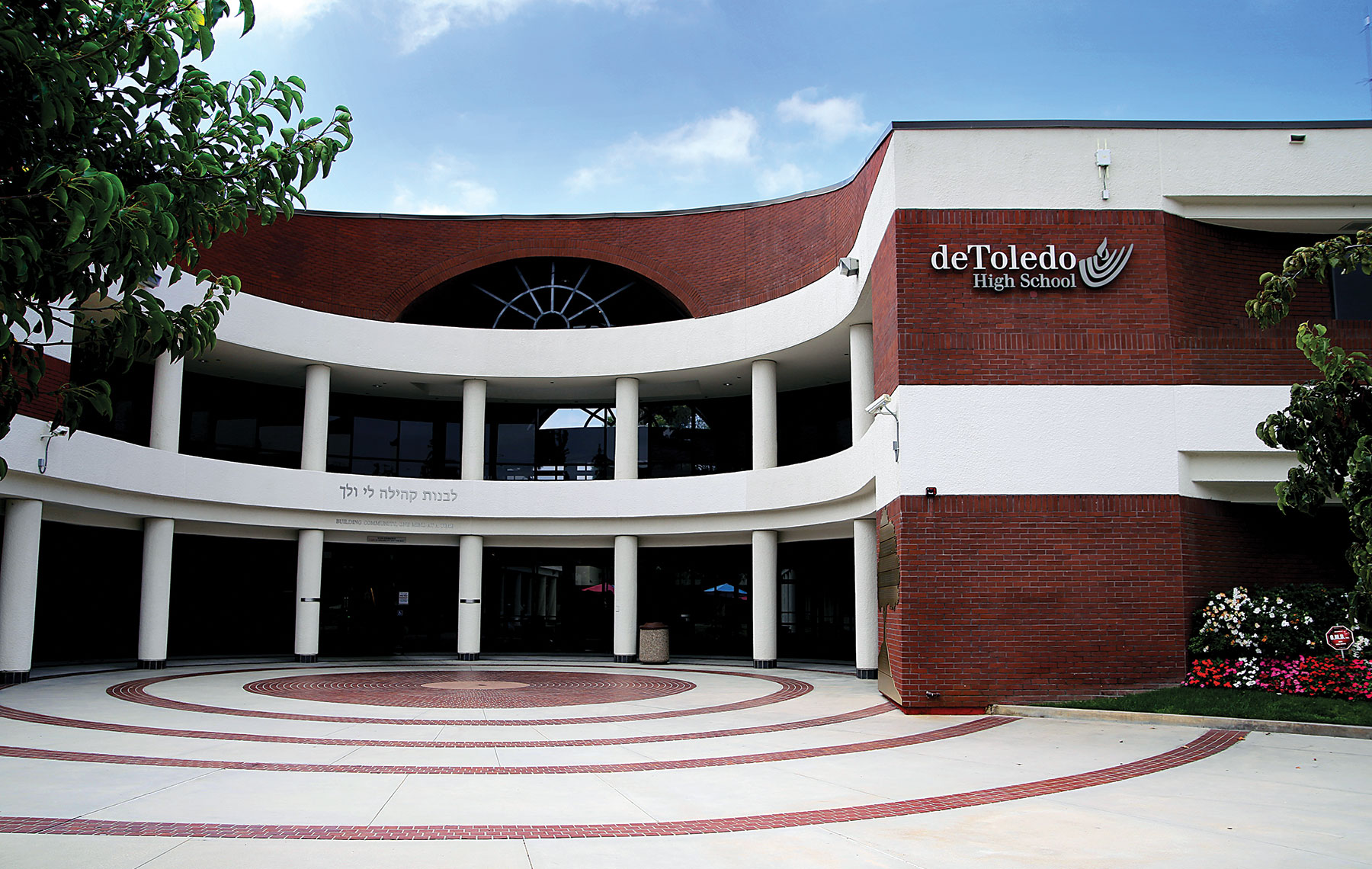 de Toledo High School
de Toledo High School On March 8, dozens of high schools across Los Angeles, including several Jewish ones, will send out notices of admission. It’s a stressful time for families applying. It’s also an extra-busy time for the admissions professionals charged with making the decisions.
The Journal spoke with de Toledo Director of Admissions Michelle November about the process at that high school.
This year, as in recent years, de Toledo will accept approximately 100 students into ninth grade and take a much smaller number for 10th and 11th grades. Unlike some schools, de Toledo does not release the number of applicants it receives.
“We’re not really about a rate,” November said. “We’re about the fit. Is this child a good fit for our school and are we a good school for that child?”
However, she did make it clear that de Toledo does not accept everybody who applies. Although it may seem obvious, de Toledo accepts only Jewish students. However, they don’t have to have attended a Jewish elementary and/or middle school, or speak fluent Hebrew.
“Jewishly, we are very diverse,” November said. “And that’s our goal. It’s exciting to be a point of entry for a family. Maybe they have not participated much [in Jewish life] and this is an exciting first step. That’s just as valuable as a family that has always participated.”
The school seeks students from a range of middle schools, both public and private, Jewish and not. “It’s refreshing and it’s more reflective of the real world,” November said.
De Toledo seeks students from a range of middle schools, both public and private, Jewish and not. “It’s refreshing and it’s more reflective of the real world.”
— Michelle November
Not surprisingly, grades and test scores matter. “We’re looking for students capable of being successful with our academic program, which is a dual curriculum, with extra Jewish studies and Hebrew class,” she said. “De Toledo is a rigorous, college-prep high school.” That said, a B-minus in seventh-grade science isn’t going to disqualify someone. November and her colleagues also recognize that not everyone is an ace when it comes to taking standardized tests. “Most people aren’t strong in everything,” she said. “We are really big-picture people.”
Nonetheless, there are deal breakers, including significant disciplinary issues. Another is an excess of unexcused absences and tardies on a transcript.
One factor that does not come into play in admissions decisions at de Toledo is a family’s finances. Admissions decisions are made blind. That means whether or not a family can afford the approximately $39,000 yearly tuition has no impact on a student being admitted. Financial aid decisions regarding what the school calls “tuition assistance” are made separately.
For families who are thinking about de Toledo for their current sixth- or seventh-grader, November said it’s important to get to know the school. While families don’t accrue points for coming to the annual open house (typically held in early November) or taking a parent tour, for example, she said these opportunities are invaluable in seeing what de Toledo is about — “raising up A-plus human beings.”
The school, November said, seeks families “that get who we are and value who we are.” She added it’s difficult to get the full picture if your only experience of the school is via the website or a brochure. Students in eighth grade and older also have the option to do a half-day shadow day, during which they are paired with two student ambassadors and get to attend classes, clubs and stay through lunch.
For those who do decide to apply, honesty and transparency are key. “We like to be upfront with everything,” November said. “We hope and ask that parents will do the same for us. Surprises later are usually detrimental to the student.”
November also recommended allowing prospective students to speak for themselves. She said it usually is obvious when a parent has filled out the student portion of the application. She gave the example of asking applicants about their stated interests on their applications during the interview only to find out they actually have very little interest in those areas. What happened? “Sometimes parents check off interests for students,” she said.
Because November and her two colleagues who also do interviews make every effort to get to know each student, she discourages advance prepping. “I would rather the child be him- or herself,” she said. “I have more of a sense of who that child is, who to introduce them to next, whether a particular athletic coach, the engineering teacher, or the director of drama, musical theater and vocal performance.”
Each year, November does have to make tough admissions decisions. But, she said, “my goal is to have all my interactions be kind and compassionate and truth-telling.”






















 More news and opinions than at a Shabbat dinner, right in your inbox.
More news and opinions than at a Shabbat dinner, right in your inbox.